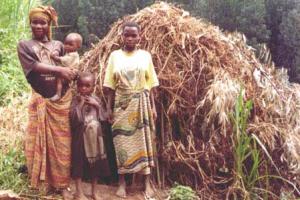Following the violent eviction of the Tupinikim and Guarani villages by tractors of the plantation and pulp company Aracruz Celulose with the support of the Federal Police in January (see WRM Bulletin Nº 102), hundreds and hundreds of international messages of solidarity with the struggle of the indigenous people to recover their legitimate lands were sent to the Brazilian authorities.
Brazil
Bulletin articles
8 February 2006
Bulletin articles
8 January 2006
The struggle of the Tupinikim and Gaurani indigenous peoples is now facing an extremely difficult situation. In February 2005, following their decision to take back their lands occupied by the eucalyptus plantations of the Aracruz Celulosa pulp company, over 100 indigenous families returned to settle in the rural areas from where they had been evicted, thus opening up the door to hopes of a sustainable and decent future (see WRM bulletins 94, 96 and 101).
Bulletin articles
8 January 2006
At the end of December 2005, Ibama – Instituto Brasilero del Medio Ambiente y de los Recursos Naturales Renovables (the Brazilian Institute for the Environment and Renewable Natural Resources) - brought a lawsuit against the Veracel Celulose company. Using satellite imagery and geo-processing, it verified the pulp mill’s irregularities and fined it R$ 320.000 for preventing or hindering the natural regeneration of the Mata Atlântica forest over an area of 1,200 hectares and worsening the situation of this biome.
Bulletin articles
9 December 2005
“The city of Vitoria in Brazil, owes its name to the “victory” of the colonialist Portuguese against the original indigenous inhabitants of the land. Today, the same name has a totally different meaning. The indigenous Tupinikim and Guarani peoples have retaken the lands that were stolen from them by the giant pulp mill corporation Aracruz Cellulose. They have been joined in the struggle against the company and its plants by other local communities and organizations from civil society who, through uniting in the struggle, have weakened the company’s power.
Bulletin articles
9 December 2005
The Mumbai-Porto Alegre (MPA) Forest Initiative is intended to serve as a platform for the joining of forces and for the building of solidarity between actors working on a wide spectrum of issues related to social and environmental justice and forests. As economic globalisation is increasingly affecting local communities, the need to create a global movement for ensuring peoples’ rights and forest conservation became an imperative that a number of participants to the World Social Forum decided to set in motion.
Other information
9 December 2005
The following Statement was issued on 24/11/05 in Vitoria, Espirito Santo, Brazil at an international meeting on building support for local communities against large-scale tree plantations and GMO trees. This meeting was co-sponsored by World Rainforest Movement, FASE-ES and Global Justice Ecology Project.
Bulletin articles
12 November 2005
Wherever the pulp and paper industry operates, it brings with it the promise of jobs. Unfortunately, for the people living in the area that the industry takes over, these promises rarely bring work. In a recent report for World Rainforest Movement, Alacri De'Nadai, Winfridus Overbeek and Luiz Alberto Soares, record how Aracruz Celulose, the world's largest producer of bleached eucalyptus pulp, has failed to provide work for local people.
Bulletin articles
12 October 2005
Six months ago, indigenous Tupinikim and Guarani people reclaimed just over 11,000 hectares of their land from the Brazilian pulp giant Aracruz Celulose. They chopped down thousands of eucalyptus trees to demarcate their territory and built two indigenous villages with a large meeting house and several other houses on the land. Several indigenous families are living in the houses.
Bulletin articles
14 July 2005
What is happening in Brazil is a historic event, not only for Brazil, but for all of us who are struggling against the advance of large scale monoculture tree plantations.
Other information
13 June 2005
“The worst immorality is a studied ignorance, a purposeful refusal to see or know” (Andrea Dworkin)
Bulletin articles
20 May 2005
In 1979, when occupying one of the last remaining forest areas of the Mata Atlântica (Atlantic Rainforest), not yet cut by the former Aracruz Florestal --currently Aracruz Celulose-- the Tupinikim and Guarani indigenous peoples in the State of Espírito Santo started a long struggle to get their lands back. This struggle was interrupted in 1998, when Tupinikim and Guarani indigenous communities, isolated and under great pressure, had to sign an agreement with Aracruz Celulose.
Publications
18 May 2005
This paper presents and analyzes data about employment and work in eucalyptus plantations and cellulose production for export in the state of Espírito Santo, more specifically about the company Aracruz Celulose, leader of the sector in Brazil.


